AB 1482: California Tenant Protection Act of 2019
November 16, 2020
AB 1482: The Rent Freeze, its Limitations, and the Letter You Should Have Sent to Your Tenants
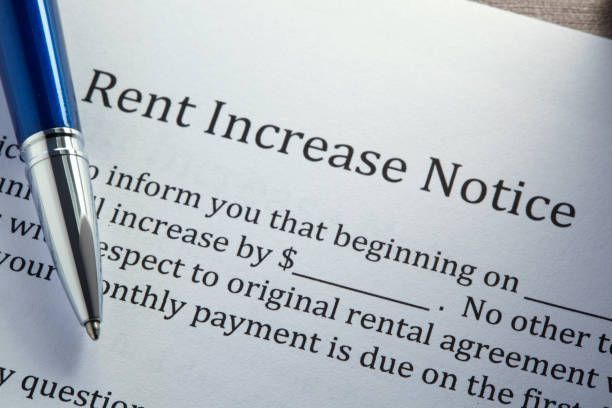
As of January, 2020, the California Protection Act of 2019 (AB 1482) as of January 2020 established Rent Caps and Just Cause Requirements for all non-exempt properties in the State of California. For those cities with rent caps already in place, local laws supersede the state's requirements established under AB 1482. With the rise of COVID-19, in April the San Jose City Council approved a complete freeze on rent increases through December 31, 2020. Other cities have followed suit.
Even if your property is exempt under AB 1482, if you’re thinking about raising rents, now is not the time to do so. Wait until January, 2021 and revisit with your assigned Forbes Group Property Manager. Your property manager can assist you with rent increases within the parameters of AB 1482 and help determine current market rental rates when the freeze is lifted.
If you are not currently a client of Forbes Group Property Management, contact us to discuss the benefits of professional management by a company with over 25 years of property management experience in Silicon Valley. Experience matters!
e. info @forbesgrouppm.com
What is AB 1482?
The California Protection Act of 2019 (AB 1482) caps rent increases and requires that landlords have “just cause” to terminate a tenancy in non-exempt properties. Termination of a lease because it has reached the end of its term is not considered “just cause” under AB 1482.
This statewide law does not remove or replace local tenant protections so if a unit is already covered by local eviction and/or rent increase regulations, those regulations remain in place. If you wish to terminate a lease in a non-exempt unit, you should discuss whether the basis for doing so falls under any of the “just cause” parameters established by AB 1482.
Upon enactment of AB 1482, landlords were required to give notice of a property’s exemption by July 1, 2020 to the resident tenant(s). If a landlord failed to give the appropriate notice timely, the property’s exemption from AB 1482 as to the tenant(s) currently living in the property, will have been lost.
Rest assured, if you were an existing client of Forbes Group Property Management the required notice was sent to all tenants. In addition, the appropriate notice is now attached to all new leases as a matter of corporate policy.
Which properties are exempt from the limitations imposed by AB 1482?
- Units that were constructed within the last 15 years
- A two-unit property, provided the second unit was occupied by an owner of the property for the entire period of the tenancy.
- Single-family homes and condominiums NOT owned by (a) a real estate investment trust (“REIT), or (b) a corporation, or (c) an LLC with at least one corporate member.
- The limited exemption for single-family homes does not apply where there is more than one dwelling unit on the same lot, or any second residential unit in the building that cannot be sold separately from the subject unit (such as an in-law unit).
- Units restricted by deed, regulatory restrictions, or other recorded document limiting the affordability to low or moderate-income households
- Certain dormitories
Notice & Disclaimer: Information provided is current as of November, 2020. As local and state laws and regulations are subject to change, this information should not be relied upon for purposes of taking any legal action. Any legal action should be taken under the advice and counsel of a licensed California attorney.

On June 28th, Governor Gavin Newsom approved another three-month extension of California’s COVID-19 eviction moratorium through September 30, 2021. The State of California has indicated that it has sufficient funds to pay 100% of delinquent rent. While they are behind on processing applications, it’s important that landlords and tenants submit for rental assistance as soon as possible. Information on how to submit is available at HousingIsKey.com What This Means To Landlords With Non-Paying Tenants: As the law currently stands, Tenants cannot be evicted for rent due between March 1, 2020 and September 30, 2021 if: The tenant submits a signed Declaration of COVID-19 Related Financial Distress within 15 days of receiving a notice of nonpayment of rent; and The tenant pays at least 25% of the rent due for the period September 1, 2020 – September 30, 2021, either in monthly installments, or a lump sum payment by September 30, 2021. This means that a lawful detainer action for non-payment cannot be brought against any tenant providing a completed declaration prior to October 1, 2021. Tenants who fail to produce a completed declaration of COVID-19 hardship or, are in violation of the lease for anything other than non-payment, can be evicted. IMPORTANT: Specific Landlord Action Now Required: In the event that a tenant does not meet the minimum 25% rent payment requirements by September 30, 2021, Landlords may only move for eviction if: The landlord has filed for rent relief under the State’s Rental Assistance Program and waited 20 days for a response. The landlord provides verification of such application for such relief before proceeding with eviction action against tenants who are protected by SB 91. Landlords may begin serving non-paying tenants with notices to pay rent or quit on October 1, 2021, provided they are able to submit verification that they’ve filed for rent relief and waited 20 days for a response from the government or the tenant to the Court. With regard to any remaining accumulated rent for the period March 1, 2020 through September 30, 2021, Landlords may file their claims in small claims court beginning November 1, 2021. Important Notice Requirement: No later than July 31, 2021, Landlords must provide an updated CTRA Notice to Tenants owing rent as of June 30, 2021. If you are a current client of Forbes Group Property Management, we have taken care of this requirement for you. Reimbursement for Back Rent: Under the new law, qualifying rental owners will be reimbursed for 100% of back rent owed by qualifying tenants by the State of California. Landlords who have already received 80% under SB 91 will automatically receive the remaining 20%. Although rental assistance is still reserved for tenants earning less than 80% of the area median income, the state is now making some exceptions for higher-earning renters who can show a loss of wages due to COVID. The full text of AB 832 is available here: https://leginfo.legislature.ca.gov/faces/billNavClient.xhtml?bill_id=202120220AB832 How to Apply for Rent Relief Qualifying renters and landlords are now eligible for 100% of rent and utilities owed. Both renters and landlords can apply for assistance here: https://housing.ca.gov/. Application Requirements for Landlords: If you have renters who are behind on their rent and need financial assistance to support this income loss, you may apply for the CA COVID-19 Rent Relief program, so long as: Your renter’s household is income eligible (the state will calculate this when they apply). All payments you receive must be used to satisfy the renter’s unpaid rent. Eligible timeframe for financial assistance dates back to April 1, 2020. Your renter(s) must take steps to verify that they meet eligibility requirements and sign the application. They will be notified once your application is submitted and asked to submit their required information. You will need: ONE of the following: Lease or rental agreement reflecting renter’s name, residence address, and monthly rent due Rent ledger or rent statement showing the balance of unpaid rent from April 1, 2020 W-9 (for tax purposes) Please note: Assistance paid directly to landlords through this program DOES qualify as reportable income for tax purposes. If you have additional questions, please contact your assigned Forbes Group Portfolio Manager. If you are not currently a client of Forbes Group Property Management, contact us to discuss the benefits of professional management by a company with over 25 years of property management experience in Silicon Valley. Experience matters! e. info@forbesgrouppm.com p. (408) 399-5252

Over the course of the past year, as we’ve dealt with navigating the institution of AB 1482 (Tenant Protection Act of 2019), as well as the various federal, state and local COVID-19 Eviction Moratoriums, I’m often asked by frustrated property owners facing bills to pay with non-paying tenants who are protected by the law, “Who is working to protect us?” My answer is: The California Apartment Association, of which Forbes Group Property Management is a long-time member. CAA works to keep us abreast of current and proposed Landlord/Tenant laws, and fights proposed legislature that they believe will discourage current and continued private investment in rental housing. This April, they managed to derail some of the worst rental housing proposals of the year, including: “Stay in Business Forever Act” (AB 854) [1] A bill to be watched that’s incubating in Sacramento is the “Stay in Business Forever Act.” This bill takes aim at California’s Ellis Act, which was enacted in 1986, and allows property owners to exit the rental business, albeit with significant notice requirements and tenant protections. AB 854 would prohibit rental housing providers from using the Ellis Act to terminate tenancies and exit the rental market until all owners of the property have held their ownership interest for five years or more. It would also prohibit owners from attempting to ever remove a second building from the market. “This law forces you to stay in business forever, prohibits you from moving into the building with your family, and prevents conversion of units into ownership housing like condominiums or tenancies in common,” CAA told its members in a mobilization email. Originally scheduled for a hearing in April by the Assembly Housing and Community Development Committee, it was pulled from consideration by the author, Assemblyman Alex Lee, D-San Jose (pictured). The proposal is now a two-year bill, meaning it won’t be heard again in 2021, but it can be resurrected in 2022. With this victory, California’s Ellis Act will remain intact, preserving a rental property owner’s right to exit the rental housing business when they choose. “Public Landlord-Tenant Registry” (AB 1188) AB 1188 is the 3rd attempt in the past 4 years to get a statewide rental registry online portal implemented. This “Public Landlord-Tenant Registry” bill also was scheduled for a hearing in the Assembly Housing and Community Development Committee in April; however, the authors, Assemblywoman Buffy Wicks, D-Oakland (pictured left), and Assemblyman Ash Kalra, D-San Jose (pictured right), pulled the item in order to make major amendments, changing the direction of the bill. What those changes will be, remains to be seen. As written, AB 1188 would require cities and counties to create and administer a rental registry and online portal designed to receive specified information from landlords who own or operate five or more rental dwellings. The bill would have required landlords to provide a variety of information regarding the location of the rental property, its ownership, tenant information, and personal financial information. It also would prohibit a landlord from issuing various notices to increase the rent or terminate a tenancy unless the landlord has submitted information through the online portal. Opposition to this bill has been mounted by various California Apartment Association Groups on the basis that this bill and AB 854 do not create new housing or make it more affordable. In addition, given that the information provided pursuant to AB 1188 would have been made available to the general public, other tenants in the building, activists and the government, the California Apartment Association of Greater Los Angeles also asserts that any such register is unconstitutional in that it “represents a de facto registry of residents and rents without due process”. With this victory, Rental property owners will be spared having to register their properties with the state or share private information on a public, online database. “Homes for Families & Corporate Monopoly Transparency Excise Tax” (AB 1199) With the state’s housing demand by 2025 estimated to be 1.8 Million Units, and with only 80,000 a year in the pipeline, the state’s legislature is consistently working to come up with solutions to providing affordable housing in California. How will we pay for the proposed housing? With this bill by Assemblyman Mike Gipson, D-Los Angeles (pictured), which proposes an annual excise tax on a person or entity owning 10 or more multifamily or single-family rental properties. Opponents assert that AB 1199 is either a property tax disguised as an excise tax on rental properties and against the will of the voters who rejected Proposition 15 in November, or it’s a business license tax. If enacted, the bill would compel the California Secretary of State’s Office to create a database of all limited liability corporations, along with their beneficiaries to avoid transfers of property in an attempt to side-step this excise tax. Either way, the yet to be defined tax rate would be based on the gross receipts of the rental income and is anticipated to generate $1 Billion a year for the state to apply toward affordable housing programs. Gipson has pulled AB 1199 from consideration for the rest of the year making it a two-year bill which could be brought back in 2022. With this victory, Rental owners will not be charged an excise tax in order to fund government housing programs. While put to bed in 2021, all of these bills are expected to reappear in 2022. We will post updates as we hear further. [1] https://leginfo.legislature.ca.gov/faces/billTextClient.xhtml?bill_id=202120220AB854 [2] https://leginfo.legislature.ca.gov/faces/billNavClient.xhtml?bill_id=202120220AB1188 [3] https://leginfo.legislature.ca.gov/faces/billNavClient.xhtml?bill_id=202120220AB1199 If you are not currently a client of Forbes Group Property Management, contact us to discuss the benefits of professional management by a company with over 25 years of property management experience in Silicon Valley. Experience matters! e. info@forbesgrouppm.com p. (408) 399-5252
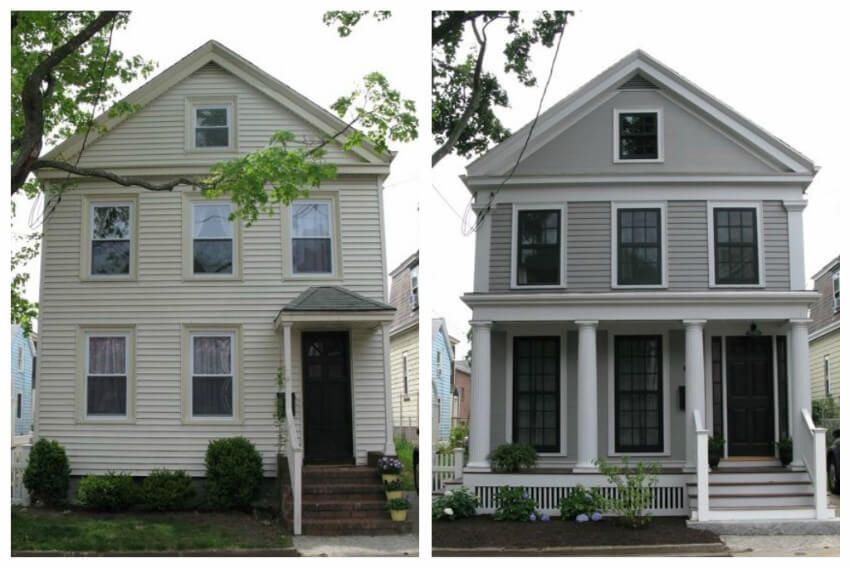
The curb appeal or first impression that your property gives is critical to your overall success. Far and away the easiest way to increase cash flow and value is to simply clean up and address the deferred maintenance found in most properties. One of the fundamental rules of real estate is basic supply and demand. If your property really stands out and looks much better than comparable properties, you generate high demand. Especially important in this downward trending market, proactive maintenance will help your rental stay occupied, and assist vacant units in attracting new tenants more quickly. Besides curing the simple deferred maintenance, another great way to increase cash flow (and value) is to renovate the property. The key here is to spend money only on items that enhance the property and provide a quick payback. Examples include sub-metering utilities, upgrading appliances, increasing curb appeal, or adding new features that tenants desire. The Benefits to Staying on Top of Property Maintenance Increased Property Value A lack of repairs will detract from the property’s market value and rental prices received, ultimately leading to a lower return on investment. Overall, well maintained properties out-perform lesser maintained properties both in terms of rentals and, ultimately, sale of the property. Satisfied Residents Poor maintenance of buildings, property, and appliances will generate dissatisfied residents. This can lead to negative reviews, increased churn, and more vacancies. Reduced Costs An efficient property maintenance schedule can help save money by minimizing risks, extending the life of appliances and equipment. Deferred maintenance often culminates in much larger expenses. Pro Tips Forbes Group Property Management has a team of vendors on hand to help you make some simple, affordable investments in your property to increase curb appeal, as recommended by the pros: Landscaping Improvements Trim trees and replace declining or dead plantings is the simplest way to improve curb appeal. Hiring a professional landscaper to tend to your property not only results in proper care but they will notice if plants or the lawn is dying because the tenants are failing to water properly. Repainting Tired Exteriors By simply repainting and adding cost-effective framing out of windows with a contrasting color to enhance architectural details, your property will stand out from a typical "rental property". Tenants wish to create a home. Setting your building apart from other properties allows them to do that which, in turn, leads to a property that rents more quickly with tenants that tend to stay in the property longer. Updating the Property For residential rentals, the best return on investment inside the units is found in updating the baths and kitchens. If a full renovation is not in the budget, upgrading old appliances or repainting kitchen cabinets will ensure your property stands out. Another easy upgrade is removing old carpet and replacing it with a cost-effective engineered wood flooring or tile. Many tenants dislike carpet. Protecting your Investment By investing in the installation of an automated, water-conserving, drip irrigation system, you not only conserve water but will properly maintain your landscaping. Poorly maintained landscaping and drab curb appeal quickly provides the impression of an uncared-for property. Holding tenants responsible for landscaping damage due to improper watering is also important and is just one of the recommended practices Forbes Group Property Management follows in preparing leases on behalf of our owners. If you are not currently a client of Forbes Group Property Management, contact us to discuss the benefits of professional management by a company with over 25 years of property management experience in Silicon Valley. Experience matters! e. info@forbesgrouppm.com p. (408) 399-5252
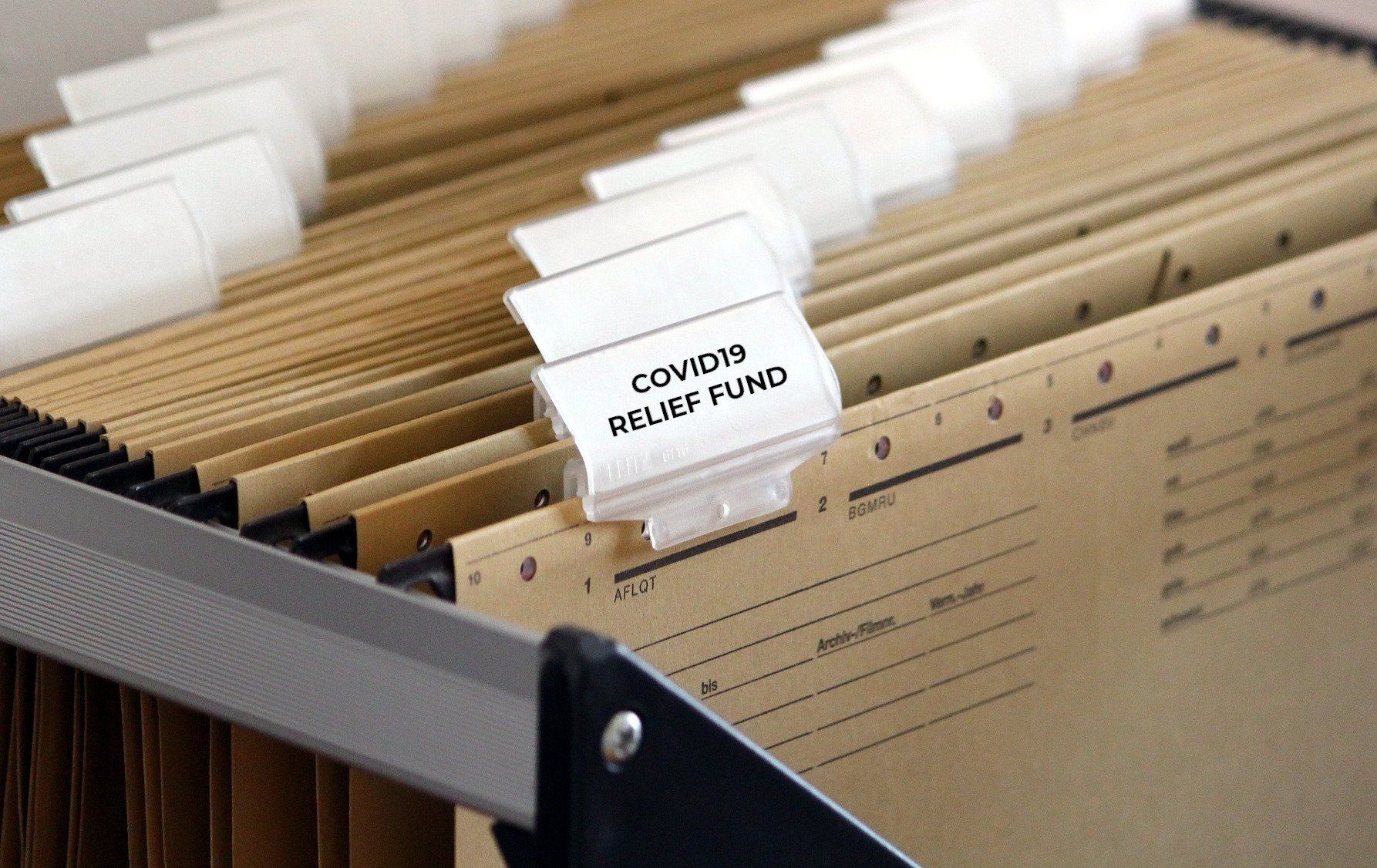
On January 28, 2021, the state of California passed SB 91, a senate bill designed to extend the protections of the AB 3088 Tenant Relief Act through June 30, 2021. Under SB 91, the Tenant Relief Act’s “Transition Period”, unless further extended, will now end on June 30th instead of January 1st. The State of California, with the assistance of federal funds, is establishing a $2.6 billion rent relief program for landlords and tenants. What does this mean for you? Your tenants’ due date to pay at least 25% of their total rent due during AB 3088’s Protected Period has now been extended to June 30, 2021. At that point, to avoid eviction, tenants are required to pay at least 25% of their rent that came due from September 2020 through June 2021. For every tenant who has a past due balance as of January 31, 2021, the landlord must send a State of California Required Notice on or before February 28, 2021. If you are a current client of Forbes Group Property Management, you do not need to take any action; we will take care of this requirement for you. During the Protected Period (March 1, 2020 - August 31, 2020); and During the Transition Period (September 1, 2020 – June 30, 2021) Landlords cannot evict any tenant for unpaid rent resulting from hardship due to COVID-19. If a tenant fails to voluntarily provide a COVID-19 Declaration, you may post a 15-Day Notice to Pay or Quit which will require them to do so. There are different notices for each period. If you are a client of Forbes, upon your request to do so, your assigned Forbes Property Manager will prepare and post the appropriate forms for you. Tenants who submit a Declaration cannot be evicted for non-payment of rent during the Protected Period — ever . Only tenants with income above $130,000 per year are required to provide proof of financial impact due to COVID-19. SB 91 also extends the period for pursing unpaid rent during the Protected Period or Transition Period in small claims court until after August 1, 2021. SB 91 also extends “Just Cause” protections that are currently in place, through June 30, 2021. This does not preclude landlords from noticing termination of a lease for violations of the lease or in the event that the landlord is taking the property out of the rental market. Your Forbes Group Property Manager will work with you to ensure compliance with the Just Cause provisions relevant to your property. Some Good News While final processes are still being determined, for landlords that elect to participate in the program, California’s Rental Relief Program will offer repayment of unpaid rent for qualified tenants. Key points to note are: Applications for relief are scheduled to begin no later than March 15, 2021. Funding for unpaid rent for the period April 1, 2020 through March 31, 2021 is scheduled to remain in place until December 31, 2021, or until exhausted. In return for participating in this voluntary relief program, landlords must forgive 20% of the unpaid rent due from the tenant. For landlords that elect not to participate in this program, the state will only pay up to 25% of the unpaid rent on behalf of qualified tenants who apply for relief under this program. The state has yet to determine if landlords can apply directly or if a claim for relief must be made by the tenant. For landlords impacted by non-payment of rent it’s important to monitor the below website and submit your application to the appropriate governmental agency while funding is still available: California Rental Relief Program If you have additional questions, please contact your assigned Forbes Group Portfolio Manager. If you are not currently a client of Forbes Group Property Management, contact us to discuss the benefits of professional management by a company with over 25 years of property management experience in Silicon Valley. Experience matters! e. info@forbesgrouppm.com p. (408) 399-5252 Additional Resources: https://www.natlawreview.com/article/california-legislature-extends-residential-eviction-moratorium-and-implements-rental https://www.bcsh.ca.gov/covidrelief/tenant_relief_faq.html http://leginfo.legislature.ca.gov/faces/billNavClient.xhtml?bill_id=202120220SB91 Notice & Disclaimer: Information provided is current as of February 2021. As local and state laws and regulations are subject to change, this information should not be relied upon for purposes of taking any legal action. Any legal action should be taken under the advice and counsel of a licensed California attorney.

Many of our owners have “no pet” policies and, until recently, those policies were generally a non-issue, since most exceptions were made for obvious service animals like guide dogs for the blind. The landscape is changing, however, and today’s exceptions have met challenges on both federal and state levels. Tenants and their advocates have asserted challenges ranging from the types of animals permissible to the scope of support the animal provides. They have also challenged what qualifies as “acceptable proofs of support.” Court rulings have leaned strongly in favor of tenants, leaving an open minefield that landlords now need to navigate. To avoid being sued for a fair-housing violation, landlords need to understand the inherent risks of dealing with pet policy exception requests. Simply asking your tenant the wrong question or wrongfully denying their request under your building’s “no pet” policy could result in an expensive lawsuit. This is an area of landlord/tenant law that is highly sensitive and fraught with legal risk. Below we briefly explain the rules and regulations you need to know. Most importantly, if you receive a request for accommodation of a support/service animal, contact your assigned Forbes Group Portfolio Manager prior to responding to the tenant. Which Laws Govern Support Animals and Service Animals? Federal laws under the Federal Housing Act (“FHA”) and Americans with Disabilities Act (“ADA”) control when a tenant requests the “reasonable accommodation” of a service/support animal in property that has a “no pet” policy. The laws under FHA and ADA provide tenants with protections that allow them to enjoy the residence on an equal basis with tenants who are not disabled. While state laws are narrower in their definition of “service animal”, federal law does not limit the type of animal that can be a service/support animal. Nor does federal law require that the animal have any specialized training. The only requirement is that the service animal assists the tenant with his/her disability. While California law is narrower in defining which animals are permissible as support animals, a landlord relying on California law would be exposed to a violation of federal laws. As a result, a landlord complying with the less-broad California requirements may find themselves in violation of federal laws. What is a Disability? A disability can be physical, mental or emotional. The legal definition states that it must be “[A] physical or mental impairment which substantially limits one or more major life activities. A major life activity is defined as things like “as caring for one’s self(sic), performing manual tasks, walking, seeing, hearing, speaking, breathing, learning and working.” For instance, an emotional disability such as anxiety or depression “limits one or more major life activities” and, as such, would entitle an individual to claim that they are disabled and that the support animal provides them with the ability to take on tasks that they would otherwise be unable to. However, asking a tenant if they are disabled, the severity of their disability or even what their disability is, is a violation of California law and can expose a landlord to liability. Landlords are limited to requesting some documentation as to how the accommodation of the support animal will permit use and enjoyment of the property. That being said, they cannot force the documentation to be provided and cannot unreasonably delay processing of a tenant’s application pending receipt of any such documentation. Service vs. Support/Companion Animals The term "service animal" refers to an animal that has specific training to assist a disabled person, e.g. a guide dog. The term "support animal" or "companion animal" is one that assists a disability but is not required to have any special training e.g. an animal that eases anxiety; or helps ease depression. What Verifications are Permitted? If a tenant has an obvious disability you cannot request any verification. For example, a blind tenant requests a reasonable accommodation for their guide dog. For a tenant with no obvious disability, you may request that he/she verify that he/she is disabled but you may not ask about the nature of the disability. Doing so is a violation of California law and exposes you to liability. Proofs of disability may be limited to documentation (e.g. a copy of a disability check) or a verification from any third party that is in a position to know of the disability. It does not have to be a medical certification. It could be anyone that has knowledge of the tenant’s disability, including a family member. A landlord may also ask for information that demonstrates the relationship between the requested accommodation of a service/support animal and the person’s disability. It’s important to note however, that the scope of this description is also protected in that you’re not entitled to know any specifics about the disability should the tenant choose not to disclose. Permitted Service Animals A tenant can at any time during their lease term request accommodation for one or more animals. While they will still need to demonstrate how the addition of a second service/support animal supports their disability, precluding additional support/service animals on the basis of a pet restriction policy within the building is not permissible. The type of animals that are permitted to serve as support/service animals is an open item in the courts. Because no restriction on the type of animal has yet been determined, currently any animal can in fact be considered to be a “reasonable accommodation” provided: The animal “facilitate a disabled individual’s ability to function”; The accommodation “survive a cost benefit analysis that takes both parties needs into account”; and The animal it is not a risk to others, or illegal. Specialized training has been determined by the courts not to be a requirement. All that is required is that the service/support animal “affirmatively enhance a disabled plaintiff’s quality of life by ameliorating the effects of the disability”. For instance, a cat that helps with anxiety; or a dog or a monkey that helps alleviate depression. The only actual restrictions on the types of animals that qualify as service/support animals are: An animal with an existing pattern of aggression. It’s important to note that a landlord cannot determine aggression by breed. Rather, in the case of a dog, there must be a history of aggressive behavior. Dangerous animals e.g. rattlesnakes or tigers. Illegal animals, e.g. ferrets in California This means that any animal that is not either aggressive, dangerous, or illegal may be a service/support animal. If there is an issue of aggression, or accommodation of the animal is unreasonable, then the landlord has a duty to engage in an “interactive process” with the tenant to try and find an alternate accommodation. For instance, if a landlord’s insurance company does not permit aggressive breeds and will not provide the landlord with a waiver on the breed restriction, then the landlord has a duty to try and resolve the issue with the tenant by perhaps suggesting an alternate breed of dog. Recognizing this is a hot-button issue, the California Department of Fair Employment and Housing is currently working on fair housing regulations that may further address this particular issue. Ultimately, if the landlord is unable to resolve an issue in connection with a request for the accommodation of a service/support animal with the tenant, then the advice of legal counsel should be sought before denying the tenant’s request. When is a Request Unreasonable? Important to note is that if a landlord considers a request for accommodation unreasonable, then he/she must try and negotiate a solution with the tenant for an alternative accommodation. Simply declining is not an option. Generally, however, for a landlord to assert a request for an accommodation is unreasonable he/she has the burden of demonstrating: The request will impose due financial or administrative burden on the landlord; Accommodation of the request would fundamentally alter the nature of the operation; or The request creates unreasonable health and safety risks. None of this should be taken lightly. Denial of a request for the accommodation of a service/support animal should be done with the guidance of legal counsel . Furthermore, landlords should be aware that delaying responding to a request for a reasonable accommodation is also a violation of fair housing rules and regulations with exposure to significant legal risk. What is Permitted? You may request (but cannot demand) that a tenant sign a Pet Addendum outlining the rules and regulations specific to the pet i.e. picking up after the dog, etc. Requirements, however, cannot cause the use of the animal in its supportive role to be limited. For example, if the animal is unable to support the disabled tenant by being on a leash that rule cannot be part of the Pet Addendum. Restrictions from certain common areas, e.g. pool, is also not permitted. A landlord may, however, hold the tenant responsible for any nuisance issues that the animal causes to other residents. As would be done for any other violation under the lease, the must give the tenant time to correct an issue before taking steps against the tenant. You may request (but cannot demand) verification as to the need for the accommodation if the disability is not obvious. You may deduct from the tenant’s security deposit for any damage done by the service/support animal but you cannot request any additional fees or security deposit monies from the tenant. Tips from the California Apartment Association: 1. Don’t ask the tenant about their disability. 2. If a tenant requests an animal as an accommodation for their disability, ask how you, as the property owner, can be sure that it is a service animal and not just a pet, so that other tenants don’t feel unfairly treated. 3. Ask tenants who make a request, to put the request and any information regarding the animal in writing. Keep these documents on file. 4. If you are skeptical about tenant’s disability, or whether the animal really helps the tenant, consult an attorney familiar with fair housing laws. 5. Don’t require the applicant or tenant to pay a fee or a security deposit as a condition of allowing the applicant to keep the assistance animal. If you are not currently a client of Forbes Group Property Management, contact us to discuss the benefits of professional management by a company with over 25 years of property management experience in Silicon Valley. Experience matters! e. info@forbesgrouppm.com p. (408) 399-5252 Notice & Disclaimer: Information provided is current as of December, 2020. As local and state laws and regulations are subject to change, this information should not be relied upon for purposes of taking any legal action. Any legal action should be taken under the advice and counsel of a licensed California attorney.
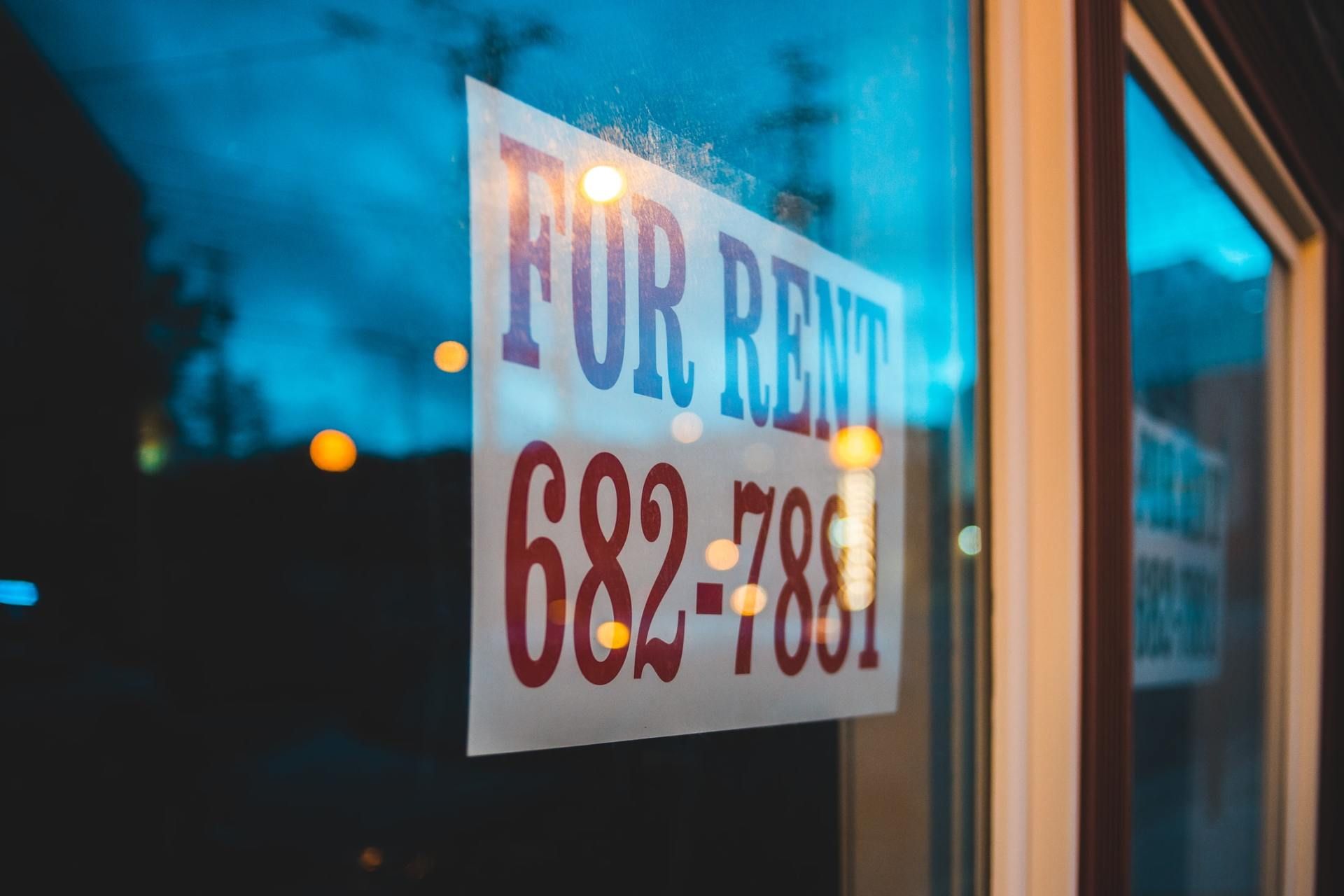
The COVID-19 Tenant Relief Act, a.k.a. AB 3088, mandates that any tenant who missed a month or more of rent between March 1, 2020 and August 31, 2020 be served with a notice describing the Act’s unpaid rent collection policies from its initial Protected Period through the Transition Period. The notice was required to be delivered to any tenants knowingly impacted by COVID-19 by September 30, 2020. If Forbes Group manages your property, this notice was already sent on your behalf. If we do not manage your property, and you did not send a similar notice by the due date, you may have lost your right to claim any unpaid rent and you may be subject to tenant legal fees if you initiate an eviction action. Key Points Covered in the Notice During the Protected Period (March 1-August 31, 2020): Landlords cannot evict any tenant for unpaid rent resulting from impacts of COVID-19 Tenants who submit a Declaration cannot be evicted for non-payment of rent during the Protected Period — ever Only tenants with income above $130,000 per year are required to provide proof of financial impact due to COVID-19 Landlords in Santa Clara County may pursue damages in small claims court after March 1, 2021 If a tenant fails to provide the COVID-19 Declaration, you may post a 15-Day Notice to Pay or Quit. Once posted, tenant has 3 weeks to file a Declaration or be evicted. During the Transition Period (September 1, 2020-January 31, 2021): Tenants have until January 31, 2021 to pay 25% of their rent during this period Any remaining unpaid rent on Santa Clara County properties may be pursued in small claims court after March 1, 2021 If a tenant pays less than 25% of the rent during the Transition Period by January 2021, you may serve them with a 15-Day Notice to Pay or Quit (even if a Declaration is on file) To understand your rights and responsibilities under AB 3088 as it relates to any of your properties, contact your assigned Forbes Group Property Manager. If you are not currently a client of Forbes Group Property Management, contact us to discuss the benefits of professional management by a company with over 25 years of property management experience in Silicon Valley. Experience matters! e. info @forbesgrouppm.com p. (408) 399-5252 Notice & Disclaimer: Information provided is current as of November, 2020. As local and state laws and regulations are subject to change, this information should not be relied upon for purposes of taking any legal action. Any legal action should be taken under the advice and counsel of a licensed California attorney.


